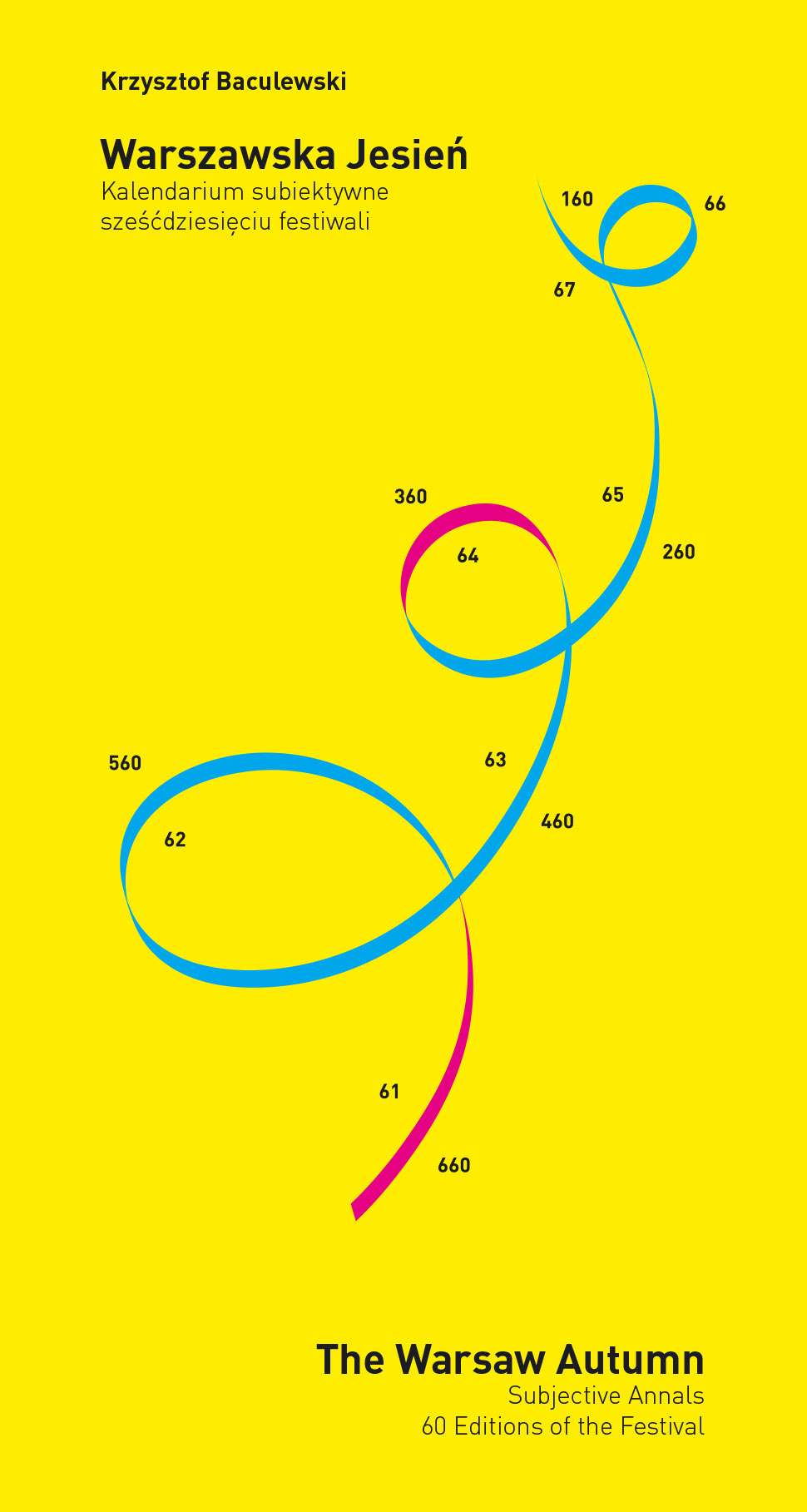
Krzysztof Baculewski "Subjective Annals 60 Editions of the Festival"
This 'Warsaw Autumn' abounded in major events. Henryk Szeryng played Szymanowski's Violin Concerto No. 2, Op. 61; Mauricio Pollini gave a recital of Arnold Schoenberg's piano works (Klavierstücke Opp. 11, 19, 23), Pierre Boulez's Sonata No. 2 and Luigi Nono's ...so erte onde serene (with tape). Włodzimierz Kotoński demonstrated a new style in Wind Rose, and Zygmunt Krauze did the same in his Piano Concerto. Wojciech Kilar continued to explore the Polish highlands inspirations - this time somewhat in uenced by the Young Poland style in his poem Kościelec 1909. Olga Szwajgier appeared in the cycle of Madrigals by George Crumb. ere were debuts by Eugeniusz Knapik with the orchestral song Le Chant and Andrzej Krzanowski with a multimedia spectacle (with slides by Kazimierz Urbański). De Staat by Louis Andriessen proved a sensation, and so did Symphony No. 3 (Symphony of Sorrowful Songs), Op. 36 by Henryk Mikołaj Górecki, received with mixed feelings. It was hard to obtain a ticket for Cathy Berberian's recital 'From Monteverdi to the Beatles', which included a number of enthusiastically received jokes: Cat Duet by Gioacchino Rossini (the other cat was the soloist's accompanying pianist, Harold Lester), the aria Après un dîner by Jacques O enbach, a 'Baroque-and-roll style' arrangement of the Beatles' song Yesterday sung à la Elisabeth Schwarzkopf, as well as Ticket to Ride in the style of a Handel aria. Contrast was provided by Krzysztof Knittel's string quartet dorikos. 1977 also brought a significant change: the Polish Composers' Union succeeded in having the censor's ban li ed from the names and works of Andrzej Panufnik and Roman Palester. The Festival audience could now listen to Universal Prayer by Panufnik.